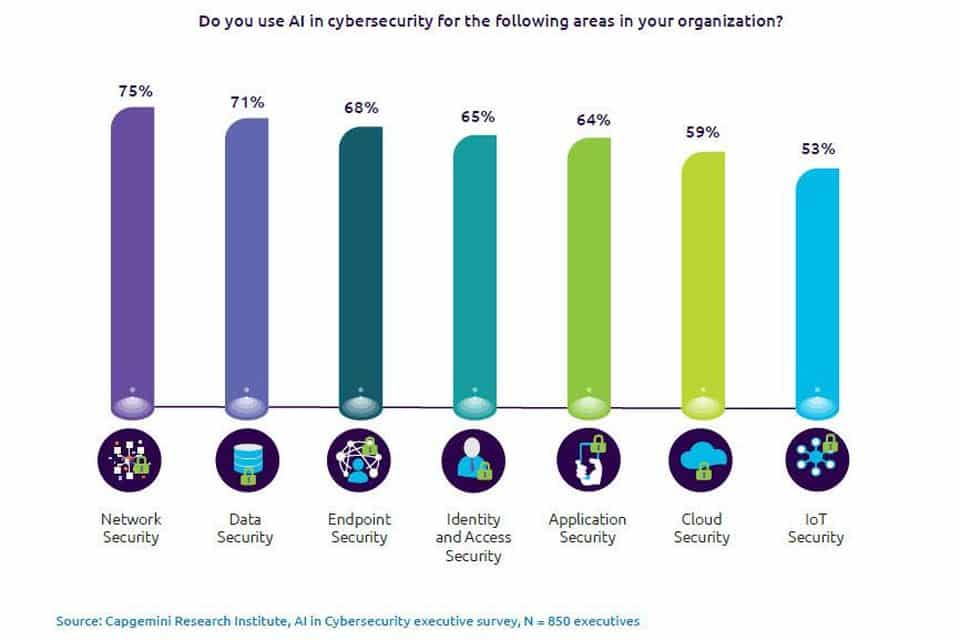Artificial Intelligence (AI) is increasingly utilized across a variety of industries as it streamlines and improves business processes. AI can also facilitate the quick detection of data breaches. Currently 61% of businesses are unable to recognize breaches without the use of AI cybersecurity. Data breaches have been escalating of late, especially in the healthcare space. The healthcare industry is the fastest growing sector in the U.S. economy and also the most vulnerable. As such, many senior executives recognize the need to implement AI into their cybersecurity practices.
Capgemini Research Institute surveyed 850 executives and found the following:

AI cybersecurity implementation allows organizations to detect breaches 12% faster on average than detection without AI use. Detecting breaches quickly is essential for limiting the impact, the longer it takes an organization to detect a breach, the more individuals will be impacted and the more it will cost an organization.
Is your organization secure? Find out now with our HIPAA compliance checklist.
How AI Cybersecurity Can be Utilized
AI can be used for several purposes including malware detection, fraud detection, intrusion detection, determining network risks, and user behavioral analysis.
- Malware detection: traditional malware detection relies on researchers to manually select and identify code. AI cybersecurity tools can identify malicious code without relying on databases compiled by malware researchers.
- Fraud detection: AI allows for real-time fraud detection as it can quickly analyze large data sets. This facilitates fraud detection as AI can determine regular usage patterns to determine if activity is fraudulent.
- Intrusion detection: AI cybersecurity tools monitor system and network activities allowing for an intrusion to be quickly detected.
- Determining network risks: AI can easily determine gaps in an organization’s network security. Identifying gaps and addressing gaps with remediation efforts limits the risk that an organization will experience an external breach.
- User behavioral analysis: AI can analyze user behavior to determine acceptable use patterns for each user. Determining use patterns is the key to detecting insider breaches, as it alerts administrators to excessive access of sensitive data.
AI Cybersecurity and Healthcare Security
With the prevalence of healthcare breaches, organizations working with protected health information (PHI) must have safeguards in place protecting the sensitive information. AI cybersecurity tools enable healthcare organizations to secure PHI and quickly detect PHI breaches.
The Department of Health and Human Services (HHS) recommends that healthcare organizations implement the following cybersecurity practices:
- Email protection systems
- Endpoint protection systems
- Access management
- Data protection and loss prevention
- Asset management
- Network management
- Vulnerability management
- Incident response
- Medical device security
- Cybersecurity policies
Implementing AI cybersecurity tools address the recommendations made by HHS. Healthcare organizations not already doing so should implement AI cybersecurity to better secure their data and allow for quick detection of healthcare breaches.









